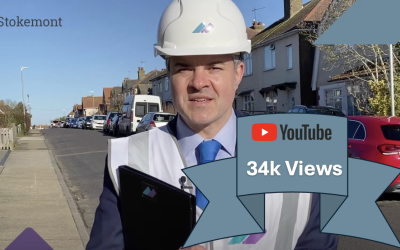If you live in a property that you do not own, and you want to change things, then you may have to apply for a license to alter.
The important thing to remember is that you will have a lease. This will dictate what you can and cannot do to the property, and if you want to do something which is outside of your remit, then you will have to seek a license to alter from the freeholder. But, what is one of these, and how do they work?
What is a Licence to Alter?
Okay, so what is a license to alter? Your license to alter is a written document which you get from the freeholder, and it gives you permission to make modifications to the structural elements of the property. So for example, you can change the windows, remove load-bearing walls, complete major works, remove electrical supplies, things like that.
A license to alter is written confirmation that the freeholder has assessed the alterations you want to make and approved them.
The Different Types of Alterations that Require a Licence
Not all alterations require a licence to alter. However, any alterations that would have a significant impact on the structure of your property, such as adding an extension or removing a load-bearing wall, will require a licence to alter.
How do I Get a Licence to Alter?
Getting access to a license to alter is not difficult. What you will need to make sure that you do is get in touch with your freeholder, and then talk to them about what it is that you want to do. However, the process of obtaining a licence to alter can also be complex and time-consuming. You will need to submit a planning application to your local authority, and you will also need to obtain the consent of your freeholder.
Generally speaking, a freeholder will formally investigate your request by introducing a surveyor or solicitor end of the equation. Occasionally, you do get an informal resolution of the process, but this is not likely with bigger projects.
The freeholder will then ask the professional to assess the potential works, identify hazards, weigh up the benefits, and reach a conclusion about whether it is something that they should allow you to do.
Important Process
Ultimately, this type of process is quite a challenging one, and requires a specialist level of knowledge. You will typically find that a freeholder will always pass this on to a surveyor or solicitor, as they will simply lack the experience necessary.
However, as you cannot make these changes without seeking permission, it is recommended that you take the time to follow the process through to its end, and be patient with the freeholder while they investigate the proposed changes. Make sure you communicate well, that you share all relevant information, and that you include technical drawings whenever possible.
In conclusion, getting a license to alter is not a difficult task. As long as you can evidence what you are trying to do, they follow the legal processes, and work with a freeholder to get the desired outcome, you will usually be able to do what you need to. Ultimately, you have to be prepared to put the time in to get the result that you want.
Your freeholder will have a right to seek specialist consultation, and you have to allow them adequate time to do this. Communication is a vital component of this process, so remember to be honest and transparent in your dealings.
How Much Does a License to Alter Cost?
The cost of a licence to alter will vary depending on the type of work you want to do, the size of your property, and the location of your property. However, you can expect to pay anywhere from £500 to £1,000 for a simple licence to alter.
Tips for Obtaining a License to Alter
There are a few things you can do to increase your chances of obtaining a licence to alter, such as:
- Planning your alterations carefully: Make sure you understand the requirements of your lease and your local authority before you start planning your alterations.
- Obtaining professional advice: It is a good idea to obtain professional advice from a chartered surveyor or solicitor when applying for a licence to alter.
- Being open and transparent with your freeholder: Communicate openly and transparently with your freeholder about your plans for alterations.
If you’d like to discuss how we can be of assistance to you, give us a call today and we will be happy to advise.




